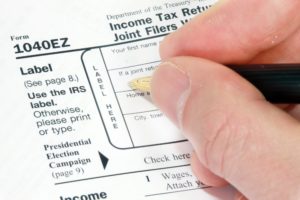When money passes through a will or the PA intestacy statute, it goes through a process called “probate.” This court process gives the estate’s executor the power to administer the estate, assembles the entire estate, and passes the shares on to the heirs. Any property that passes through the probate process is subject to an inheritance tax. Who pays this tax, and who can claim a tax refund for these payments? The Pennsylvania inheritance tax lawyers at Herr Potts & Potts may be able to help with your case.
Who Pays the Inheritance Tax in PA?
Usually, gifts and inheritances are tax-free for federal taxes. However, Pennsylvania law allows the government to tax inheritances that pass through probate. Any money or property transferred through a will is taxed as part of the transfer. If the deceased passed away without a will, PA law dictates how their estate passes instead. This process still goes through probate, and the inheritances still face taxes.
The inheritance tax is paid on the transferred property, and its value usually comes out of the property and money as it passes. This puts the burden of paying the taxes on the estate’s recipients, much like income tax, but some parties can seek exemptions and refunds for these taxes.
The inheritance tax is different from the estate tax. Pennsylvania does not use an estate tax, but it is important to understand the difference between the two. Estate taxes are paid from the estate if it reaches a certain combined value. This tax is intended to only apply to large estates and is paid by the estate before the money goes to the heirs. This means the estate tax will reduce the total value of the estate, but the tax burden does not fall on the heirs.
Exemptions and Refunds for Inheritance Taxes in PA
In many cases, recipients may be able to avoid paying inheritance taxes or may be entitled to refunds on those taxes. As with most taxes, overpaying might entitle you to a refund. When you do your taxes, any overpayment should be returned as part of a tax refund. Additionally, you may be able to avoid paying the inheritance tax in some situations.
Usually, people receiving their inheritance from certain family members may be exempt from paying the inheritance tax. Other relations might entitle you to pay a lower tax rate. The closer the heir is to the decedent, the less tax they pay. The following are the inheritance tax rates for various family members:
- Transfers to children under 21 years old and spouses are tax exempt.
- Direct descendants and “lineal heirs” (parents, grandparents, adult children, grandchildren, great-grandchildren, ) pay 4.5% tax.
- Siblings pay 12% tax.
- All other heirs pay 15% tax.
Bequests to charitable organizations or the government may also be tax exempt.
Talk to an attorney if you are receiving an inheritance from a loved one. Herr Potts & Potts’ estate administration lawyers can help you understand when you need to pay inheritance tax and help ensure that you get what you are entitled to under the will. This might mean filing challenges to a will or performing other estate litigation.
Avoiding Estate Taxes and Inheritance Taxes
In many cases, there are ways to avoid estate taxes and inheritance taxes through strategic estate planning. For instance, some accounts, insurance policies, and other “non-probate assets” do not pass through a will and are not subject to estate taxes or inheritance taxes. This can help ensure that the heirs receive a larger portion of the estate without needing to pay what can sometimes be substantial probate taxes.
Many estate planning techniques take advantage of rules allowing non-probate assets to pass to heirs without diminishing the estate through taxes. This is especially helpful for setting up trusts to provide for your spouse or children, or setting up special needs care for people in your family. In many cases, these trusts, accounts, life insurance policies, and other non-probate assets can be passed on to your spouse or children faster than property passes through probate. This can help provide immediate payments for ongoing support and care after you pass.
Talk to an attorney about estate planning today. If you are helping an elderly parent or grandparent construct their estate plan, it is important to take them to an attorney who can handle the estate planning, will drafting, and other processes on their behalf.
Contact Our Pennsylvania Estate Planning Attorneys for Help with Inheritance Taxes Today
The Pennsylvania estate planning attorneys at Herr Potts & Potts represent clients who need help with their own estate planning, as well as clients seeking help administering a loved one’s estate or getting the inheritance they deserve under a will. For help with your case, contact our attorneys today to schedule a legal consultation. Our number is (610) 254-0114.

